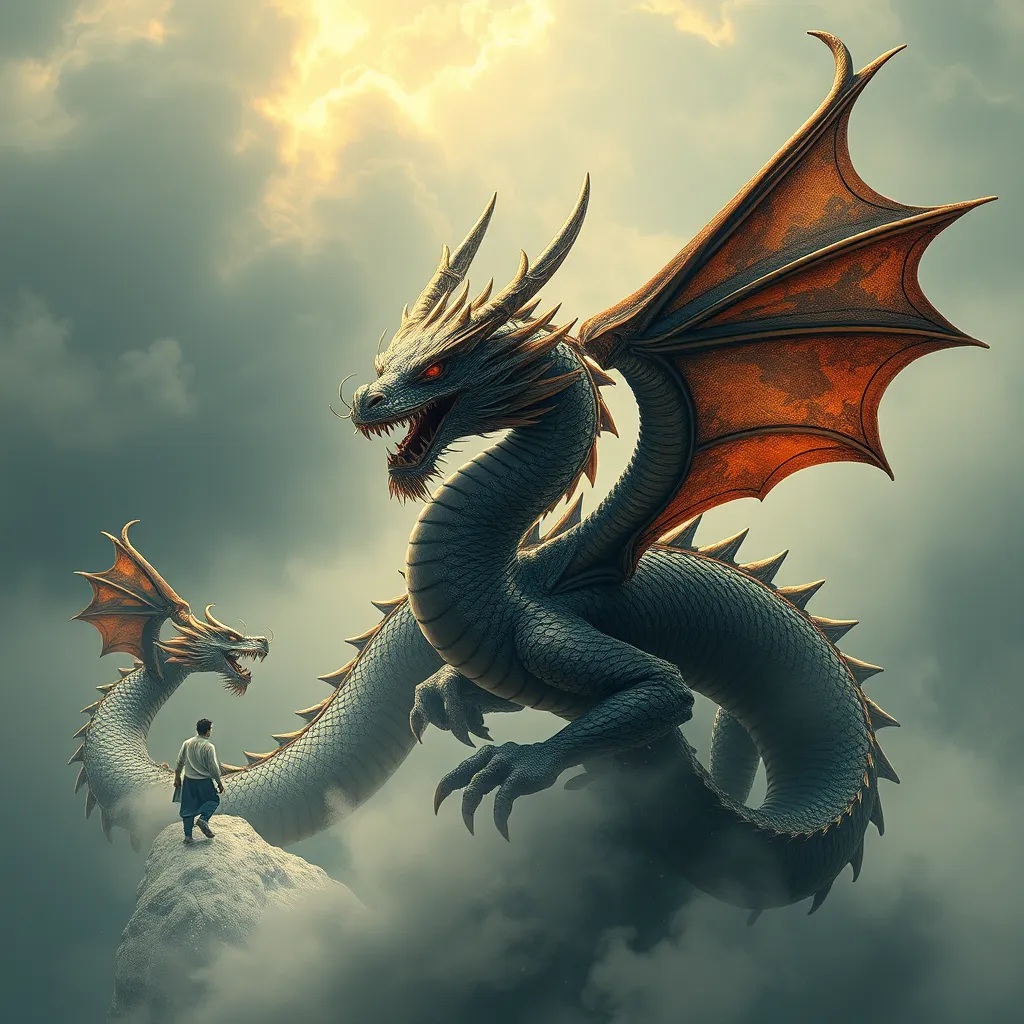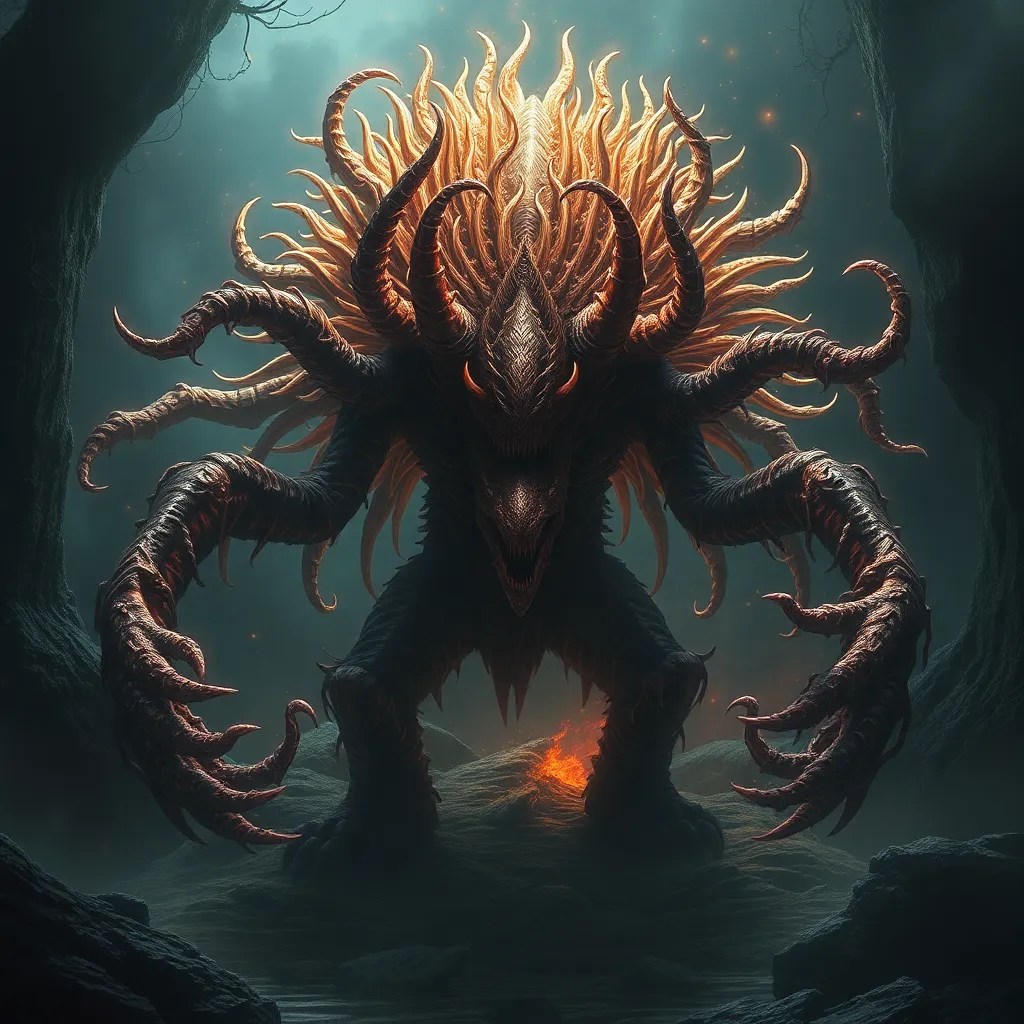The Dragon’s Faith: Analyzing the Religious and Spiritual Significance of Dragons in Different Cultures
I. Introduction
Dragons have captivated human imagination for centuries, appearing in various forms across different cultures and belief systems. Defined as large, serpentine creatures often imbued with supernatural powers, dragons symbolize a wide array of concepts, from chaos and destruction to wisdom and protection.
This article aims to analyze the religious and spiritual significance of dragons as understood in various cultures, exploring their roles in mythology, folklore, and spiritual beliefs. By examining the universal presence of dragons, we can uncover the deeper meanings and values they represent in the human experience.
Dragons are not merely fictional beasts; they embody the complexities of human nature, the struggles for power, and the reverence for nature. Their portrayal varies widely, reflecting the values and beliefs of the cultures that revere them.
II. Dragons in Eastern Religions
A. Representation of dragons in Chinese mythology
In Chinese mythology, dragons are revered as benevolent creatures associated with power, authority, and good fortune. They are considered symbols of the emperor and are often portrayed as guardians of water sources.
- Symbol of power and authority: Dragons are seen as majestic beings that symbolize imperial power and control over nature.
- Connection to water and agriculture: They are believed to be controllers of rain and rivers, essential for agricultural success in ancient China.
B. Dragons in Hinduism
In Hinduism, dragons manifest as Nagas, serpentine beings that hold a significant place in spiritual and mythological contexts.
- The significance of Naga and its divine attributes: Nagas are often depicted as protectors of treasures and sacred waters, embodying divine qualities.
- Role in creation myths and spiritual symbolism: They are featured in various creation myths, symbolizing the duality of creation and destruction.
III. Dragons in Western Religions
A. The dragon in Judeo-Christian traditions
In Judeo-Christian traditions, dragons often carry negative connotations, symbolizing chaos and evil.
- The serpent in the Garden of Eden: The serpent, often associated with the dragon, represents temptation and the fall of humanity.
- The dragon as a symbol of evil in Revelation: In the Book of Revelation, the dragon embodies the ultimate adversary, representing sin and opposition to divine order.
B. Dragons in European folklore
European folklore frequently portrays dragons as fierce opponents to be slain by heroes, representing the struggle between good and evil.
- The heroic narratives surrounding dragon slaying: Tales of knights battling dragons symbolize the triumph of good over evil.
- Symbolism of dragons in medieval Christianity: Dragons often embody pagan beliefs that Christianity seeks to overcome.
IV. Indigenous Perspectives on Dragons
A. The role of dragons in Native American mythology
In Native American mythology, dragon-like creatures often represent powerful forces of nature and the spirit world.
- Connection to nature and the spirit world: These creatures embody the interconnectedness of life, nature, and spirituality.
- Examples of dragon-like creatures in tribal stories: Various tribes tell stories of serpent beings that play crucial roles in creation and balance.
B. Dragons in Aboriginal Australian beliefs
In Aboriginal Australian beliefs, the Rainbow Serpent is a significant figure, representing life, fertility, and the connection to the land.
- The Rainbow Serpent and its cultural significance: This creature is central to many creation stories, symbolizing the nurturing aspects of nature.
- Spiritual teachings and connection to land: The Rainbow Serpent teaches lessons about respect for the land and its creatures.
V. Dragons as Symbols of Transformation
Dragons often serve as powerful metaphors for transformation, embodying the process of personal growth and change.
- The dragon as a metaphor for personal growth and change: In many cultures, encountering a dragon signifies a pivotal moment of self-discovery.
- Transformation myths involving dragons in various cultures: Numerous myths depict heroes who undergo significant changes after interacting with dragons.
- Psychological interpretations of dragons in dreams and narratives: Psychologically, dragons can represent internal fears or aspirations that need to be confronted.
VI. Modern Interpretations of Dragons
A. Dragons in contemporary spirituality and new age beliefs
In modern spirituality, dragons are often regarded as symbols of wisdom and power, guiding seekers on their spiritual journeys.
B. The influence of dragons in popular culture (literature, films, games)
Dragons have become iconic figures in popular culture, appearing in literature, films, and video games, often representing adventure and the unknown.
C. Reimagining dragon symbolism in modern spiritual practices
Today, many spiritual practices incorporate dragon symbolism, using it as a tool for empowerment, protection, and self-discovery.
VII. Comparative Analysis of Dragon Symbolism
A. Similarities and differences in dragon representations across cultures
While dragons appear in diverse cultures, their representations can differ significantly.
B. The role of cultural context in shaping dragon myths
Cultural contexts greatly influence how dragons are perceived, shaping their attributes and significance in myths.
C. How dragons serve as a bridge between humanity and the divine
Dragons often symbolize the connection between the earthly and the divine, embodying the complexities of human existence.
VIII. Conclusion
Throughout history, dragons have held profound spiritual significance across cultures, representing a wide array of themes, from creation and destruction to wisdom and transformation.
The enduring legacy of dragons in human belief systems highlights their importance as mythological creatures that resonate with our deepest fears, aspirations, and connections to nature.
Understanding dragons within a global context allows us to appreciate their role in cultural narratives and the universal themes they represent in the human experience.



